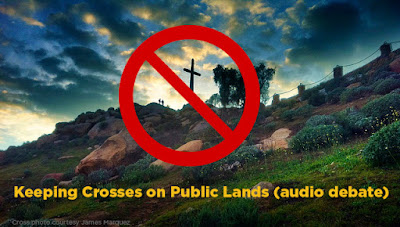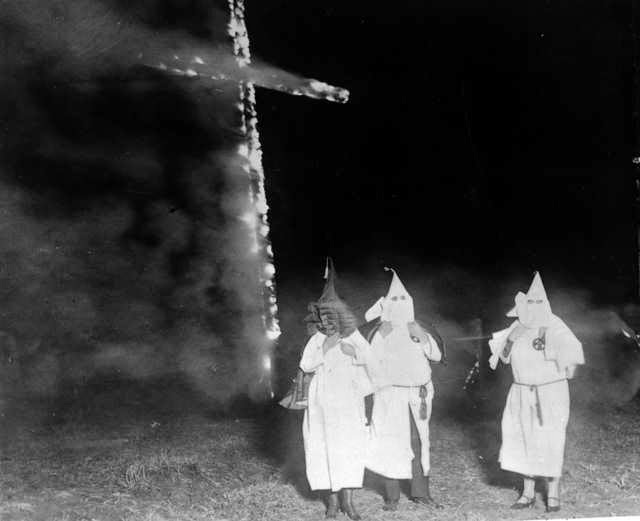Since its beginnings in first century Judea, Christianity has always been a proselyting faith. Jesus's followers, having been charged by their master to be his witnesses "in Jerusalem and in all Judea and Samaria, and to the end of the earth" (English Standard Version, Acts 1:8), effectively followed his command for centuries. But while the Great Commission has been understood to begin at evangelism, it shouldn't be understood to end there. Christian evangelists spreading across the Roman Empire shared not simply a way of salvation, but an entire worldview that was so strange and foreign to its hearers, it was labeled a "deadly superstition" and "hatred for mankind." 1 Larry Hurtado explains how the Romans saw the Christian belief system as "a dangerous development that challenged what were then accepted notions of religion, piety, identity, and behavior.2"
Of course, Rome wasn't the only culture in which Christianity was deemed anti-social and dangerous. Across the centuries and across the globe, a similar theme would play out: Christian missionaries seeking out unreached peoples to save with a message deemed most peculiar. From Patrick in Ireland to Jim Elliot in Brazil, the struggle to communicate the ideas foundational to the Christian faith met significant resistance. Even so, Christian evangelists were successful in penetrating so many pagan societies that the adoption of their weltanschauung ultimately transformed the world.3
The Need for a New Communication Strategy
Evangelism in the Western world today faces a similar issue. While the West has been built upon the Judeo-Christian worldview, it is increasingly abandoning its heritage. Growing more and more secular, basic Christian tenets now sound foreign and are not well understood, especially among the young adults.4However, today's culture in which Christians now find themselves as outliers has one significant difference. To turn Chesterton on his head, most secularists believe Christianity is not something new and untried; it has been tried and found wanting. They oppose not just Christian belief, but formal religion as an idea while pagan cultures reviled Christianity because they felt it undermined religious piety. Tacitus, Seutonius, and Pliny all used the word superstitio to describe the burgeoning Christian sect. 5 Robert Wilken notes this is a significant term, communicating groundless and irrational beliefs as opposed to a "pious worship of the gods" that gave justification for Christian persecution.6
Unlike the ancients who sought to protect their religious practices, young people today are more likely to hold religious belief as superstition in the modern sense of the term. The Barna Group's recent study The Bible in America - Six Year Trends found:
- Millennials (22%) and Gen-Xers (18%) are significantly more likely to say the Bible doesn't qualify as a holy book, even as they reject other books as holy.
- There is rising skepticism about the Bible as a sufficient guide for living a meaningful life.
- Trust in the Bible's reliability is dropping. Barna first asked American adults in 1991 if they agreed or disagreed that "the Bible is totally accurate in all of the principles it teaches." The percentage of those who strongly disagree has nearly doubled in six years.7
While those hostile to all religion may be in the minority, another problem exists in communicating Gospel truths to a post-Christian culture. People are less and less likely to understand broader Christian concepts. The explosion of moral relativism offers one example, but it isn't the only one. Even the very idea of personal responsibility can be questioned and justified. In his The Secular Age, Charles Taylor offers an example of how actions are now interpreted not as consequences of personal failure, but as signs of missing fulfillment:
[Religious Sociologist Wade Clark] Roof points to new approaches to dieting, and the control of obesity, in contemporary spiritual culture. On the older "deadly sin" understanding, obesity comes from gluttony, a temptation which must be rigorously controlled. Medicalization resituated this temptation as a kind of abnormality, the kind of thing which arises with deviant kinds of development. The contemporary understanding will often look beyond the craving to the deeper unmet spiritual needs that trigger anxious eating.10Taylor clarifies that the dieter's missing spirituality referenced above sits in contrast to "religion," where the latter is rejected as institutional and authoritarian instead of self-fulfilling, subjective, and feelings-based. Such concepts are barriers to sharing one's faith, as the very vocabulary one uses is no longer effective. Taylor concludes:
Whatever the level of religious belief and practice, on an uneven but many-sloped playing field, the debate between different forms of belief and unbelief goes on. In this debate, modes of belief are disadvantaged by the memory of their previously dominant forms.… They are even more severely disadvantaged by an unintended byproduct of the climate of the fragmented search: the fact that the falling off of practice has meant that rising generations have lost touch with traditional religious languages.11In order to reach the next generation effectively with the Gospel message, the church must communicate in a way that can relate the big ideas of Christianity but also won't be disadvantaged by negative bias the listener has toward religion.
References
1. Wilken, Robert Louis. The Christians as the Romans
Saw Them. New Haven: Yale UP, 1984. Print. 49, 60.
2. Hurtado, Larry W. Destroyer of the Gods: Early Christian Distinctiveness in the Roman World. Waco, TX: Baylor UP, 2016. Print.
3. See Alvin J. Schmidt, How Christianity Changed the World. Grand Rapids, MI: Zondervan, 2004. Print.
4. Barna Group. "The Bible in America: 6-Year Trends." Barna.org Barna Group, 15 June 2016. Web. 01 Oct. 2016.
.
5. Wilken, 1984. 49-50. Print.
6. Wilken, 1984. 60.
7. Barna Group. 2016.
8. Dawkins, Richard. The God Delusion. Boston: Houghton Mifflin, 2006. 51. Print.
9. Barna Group. 2016.
10. Taylor, Charles. A Secular Age. Cambridge, MA: Belknap of Harvard UP, 2007. Print. 507.
11. Taylor, 2009. 533.
Image courtesy Brian Talbot and licensed via the Creative Commons Attribution-NonCommercial 2.0 Generic (CC BY-NC 2.0) license.
2. Hurtado, Larry W. Destroyer of the Gods: Early Christian Distinctiveness in the Roman World. Waco, TX: Baylor UP, 2016. Print.
3. See Alvin J. Schmidt, How Christianity Changed the World. Grand Rapids, MI: Zondervan, 2004. Print.
4. Barna Group. "The Bible in America: 6-Year Trends." Barna.org Barna Group, 15 June 2016. Web. 01 Oct. 2016.
5. Wilken, 1984. 49-50. Print.
6. Wilken, 1984. 60.
7. Barna Group. 2016.
8. Dawkins, Richard. The God Delusion. Boston: Houghton Mifflin, 2006. 51. Print.
9. Barna Group. 2016.
10. Taylor, Charles. A Secular Age. Cambridge, MA: Belknap of Harvard UP, 2007. Print. 507.
11. Taylor, 2009. 533.
Image courtesy Brian Talbot and licensed via the Creative Commons Attribution-NonCommercial 2.0 Generic (CC BY-NC 2.0) license.









